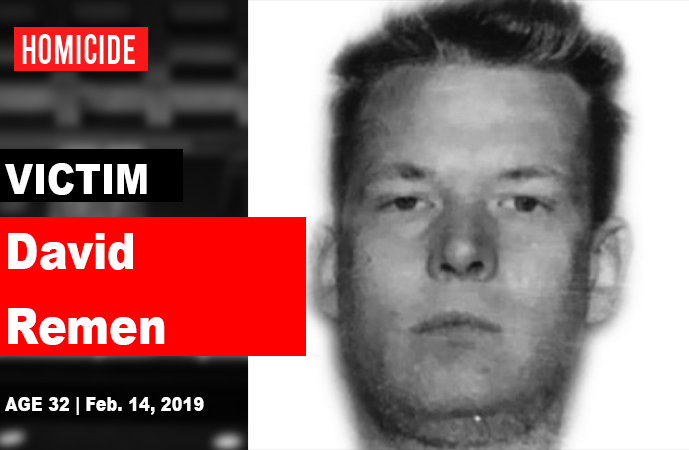
Thank you for reading D.C. Witness. Help us continue our mission into 2024.
Donate NowBy
Jeff Levine
- January 4, 2024
Daily Stories
|
Shooting
|
Suspects
|
Victims
|
In a bench trial before DC Superior Court Judge Marisa Demeo on Jan. 3, prosecutors presented dramatic video evidence and emotional witness testimony in an attempt to show that Matthew Walker, 25, murdered 32-year-old David Remen and grievously wounded another man.
Walker is charged with first-degree murder while armed along with seven other counts including assault with intent to kill and possessing a firearm during a crime of violence for his alleged connection to an incident on the 1700 block of Hamlin Street, NE, on Feb. 14, 2019.
Walker is also charged with second-degree murder while armed for allegedly stabbing 23-year-old Jamal Green-Lee to death on the 100 block of Michigan Avenue, NE on April 29, 2019. Green-Lee died on Nov. 4, 2020, due to his injuries.
In opening remarks, the prosecutor said he would prove that recovered items including, “The gun, a hoodie with red and white stripes, and a mask” all link Walker to the Hamlin Street crime.
Surveillance cameras captured the Valentine’s Day shooting at the office of Trojan Labor, a DC business, now renamed Hire Quest Direct, that specializes in placing low-skilled laborers. Prosecutors say that around 6 a.m., the day of the murder, Walker is seen wearing a hooded sweatshirt and a mask, using a Glock 19 semi-automatic pistol allegedly to kill Remen and shoot a company manager six times.
Body-worn surveillance camera footage from a responding Metropolitan Police Department (MPD) officer shows the chaos after the shooting. Emergency workers are seen frantically trying to revive Remen while counting out repeated efforts of chest compression to get a pulse started in his lifeless body.
Cries of “David…Come on, David…Stay with me, David” punctuate the video, which goes on for several minutes until the rescuers reluctantly give up. A voice is heard saying, “He’s gone!”
Prosecutors brought in David’s father from Wisconsin to testify about his son. With a picture of David projected in the courtroom, his father said David was a “great kid,” had a big family and “everybody loved him.” His father described David as hard-working but loved to play pool.
“He was no gang member,” added David’s father.
While the primary charge in the case is homicide, prosecutors questioned the widow of the surviving victim who died some three years after the initial assault. She tearfully described her husband as full of life, an ardent golfer and sports fan–someone who “loved to make people happy.”
In recalling the event, she said she received a frantic call from her husband saying that he’d been shot and that the gunman was shooting at others.
“I screamed,” she said. Her husband told her he was panicking and “hiding at his desk.”
As prosecutors led her through the incident, she said tearfully, “I was freaking out. I didn’t know what was going on.”
Ultimately, her husband was taken to Howard Hospital where surgeons told her it was a miracle that he survived. Prosecutors showed graphic photos of the damage caused by repeated gunfire. His wife said that he had a hard time emotionally and physically recovering from the ordeal, and needed physical therapy and counseling. She said he was afraid to come back to work in the District.
Many members of the victims’ families were in the courtroom. One person close to the surviving victim said he was “tormented” by what happened and his death at 57 was prematurely caused by Walker’s actions.
Prosecutors also detailed how a tip led them to recover the suspected firearm–a Glock 19– hidden between a house under construction and a retaining wall near the crime scene. Investigators also found discarded clothing in neighborhood trash bins that they say matched what the suspect was wearing during the crime.
A specialist with the DC Department of Forensic Science (DFS) presented evidence showing 10 bullet casings and multiple “defects” or areas of suspected shooting damage in the office. The expert said the casings were consistent with the recovered weapon.
The prosecution still plans to question a firearm expert and introduce DNA evidence to build its case against Walker.
At the end of the proceeding, Stephen Logerfo, Walker’s attorney said his client might take the stand to testify in his defense on Jan. 4.
Even though the case is nearly five years old, family members tell D.C. Witness they still don’t know what inspired the shootings and aren’t aware of a specific motive.
Parties indicated the trial could conclude by week’s end.
Follow this case